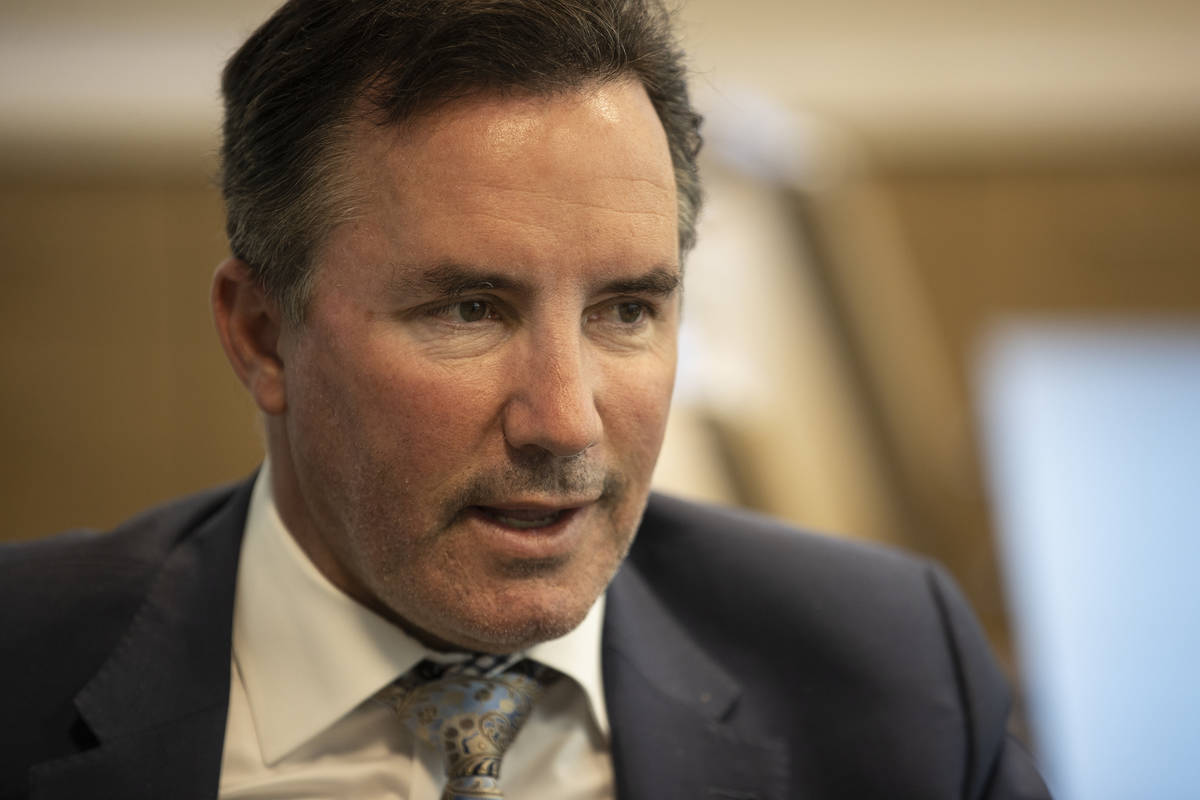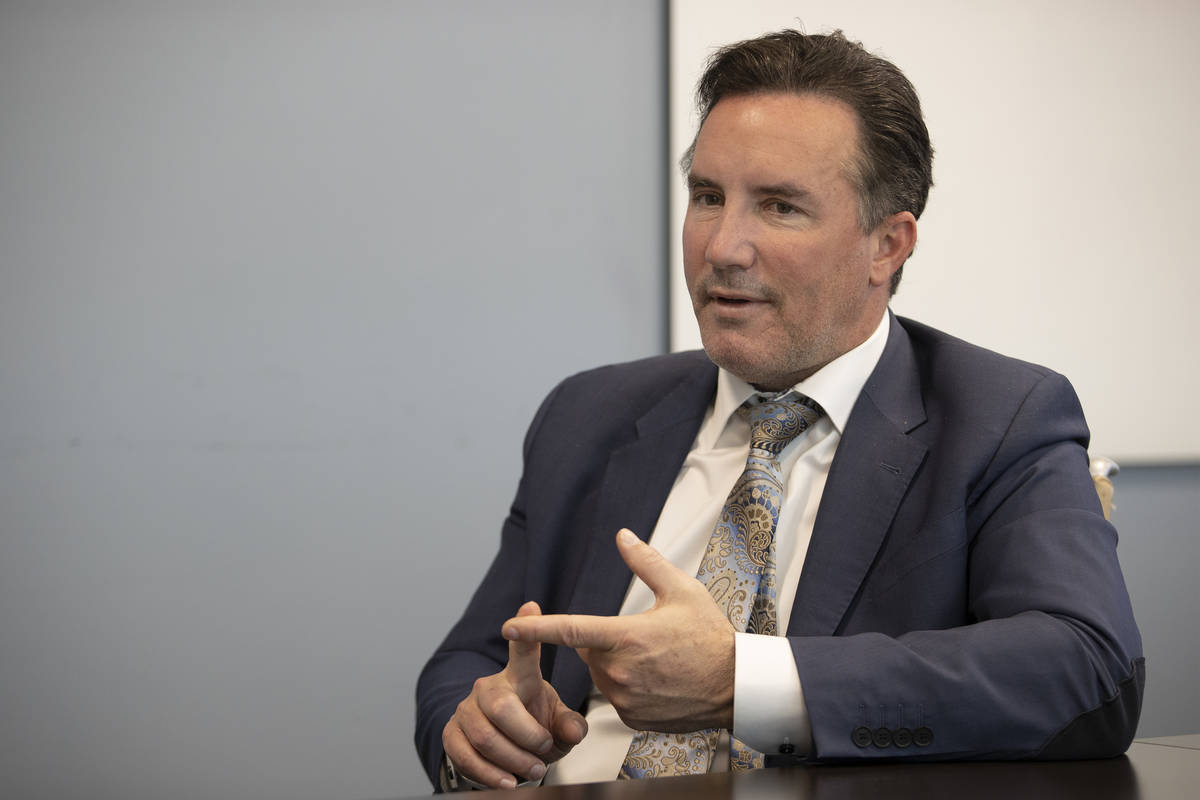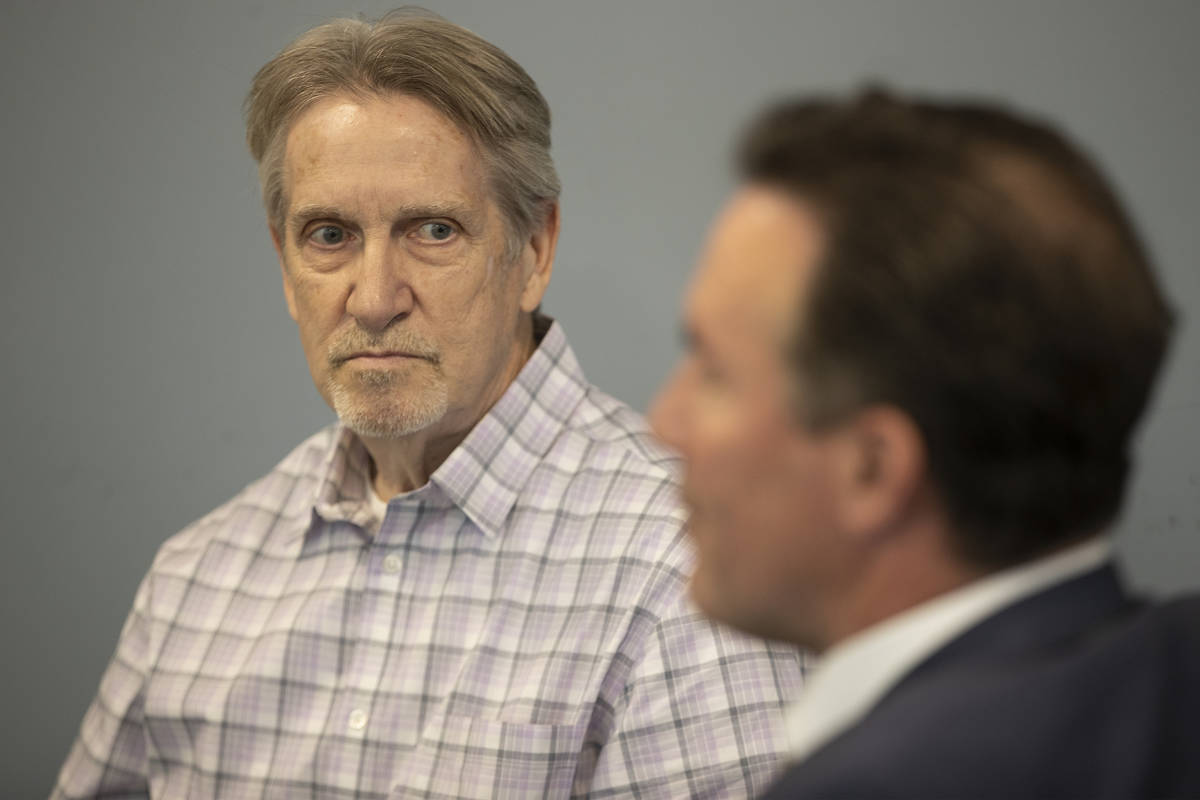Pioneering liver transplant program finds success using organs with ‘bad stories’
Mark Anderson likely contracted hepatitis in high school during a period of drug experimentation that included sharing needles. But the Las Vegas resident wasn’t diagnosed with the disease until his liver began to fail decades later.
That was two Christmases ago, when Anderson, an ATM repairman, was living in St. George, Utah. He became so sick he couldn’t move his hands or work. He was so tired that he didn’t want to do anything but sleep anyway.
Today Anderson, 67, is again working full time, and, after a 20-year break, has picked up his old hobby of playing the guitar and writing songs.
His wife had hoped he would recover enough to be half the man he used to be. Instead, “Now I’m twice the person that I used to be,” he boasted.
The turnaround came after Anderson underwent a liver transplant through a program run by Intermountain Healthcare, a nonprofit integrated health system based in Utah that expanded into Nevada in 2019.
A first for Nevada
Six months ago, it brought its pioneering liver transplant program to Nevada.
Anderson, who was sickened by both hepatitis B and D, was able to quickly get a liver transplant, in part because Intermountain will make use of donor livers with “bad stories,” as Dr. Richard Gilroy, Intermountain’s liver transplant medical director, put it.
The use in certain cases of less-than-pristine organs results in shorter wait times for patients while achieving comparable outcomes, according to Intermountain. In 2016, it successfully performed the first successful transplant in the country of a liver that had tested positive for hepatitis C.
Likewise in 2019, it transplanted a liver from a donor with hepatitis C into Anderson, then cured him of the disease afterward.
Anderson thinks that if he’d been choosier, he might have died waiting for a liver.
Many do. In 2019, 1,200 people died in the U.S. while on the waitlist for a liver, according to the United Network for Organ Sharing. There currently are 12,000 people on the list.
‘Second chance at life’
Intermountain’s one-year survival rate for a liver transplant is 93 percent. Overall the average one-year survival rate with a liver from a deceased donor is 86 percent, according to the National Institute of Diabetes and Digestive and Kidney Disease. In a small percentage of cases, living donors will donate a portion of their livers, often to family members. Some studies put the average one-year survival rate in those cases at closer to 90 percent.
About 8,000 liver transplants are done annually in the U.S. Since 1986, Intermountain has performed more than 1,500 liver transplants, including 79 last year, Gilroy said.
Intermountain performs its liver transplants, including for Nevada patients, at a hospital in Murray, Utah, outside of Salt Lake City.
For Southern Nevadans, care before and after transplantation takes place in their own community, with Intermountain focused on coordinating care among providers, Gilroy said.
“If you have a complex medical problem, the most important element is the coordination of care, meaning that each element within the care structure is coordinated to the actions of each other element,” said Gilroy, adding that improved treatment of liver disease may keep a patient from needing a transplant in the first place.
Anderson said that he required multiple types of therapy for a year after receiving his new liver.
“If your car battery dies you get a new battery. Everything’s fine,” Anderson said. “So you think, ‘If I get a new liver, I’ll just be fine.’ But it doesn’t work that way.”
Anderson said he needed therapy to learn to walk again. He also needed a different type of therapy to emerge from the mental fog brought on by illness.
Two years after his transplant, he describes a “new appreciation for my second chance at life.”
He no longer smokes or drinks. Heavy drinking, along with hepatitis, gave a “one-two punch” to his liver, he said.
‘I want to honor the gift’
“Part of the reason that I don’t (drink) is because of my appreciation, and I want to honor the gift that I was given and the donor and his family,” said Anderson, who encourages people to consider organ donation. “I don’t want to dishonor and abuse the liver that I got.”
Anderson once was the lead singer and guitar player for a classic rock band that played in bars.
“So now, I got back into it. I bought some guitars and some recording equipment, and I have my little hobby. I play every day. I’m working on some songs. I play and record.
“Having a great time.”
A previous version of this article incorrectly identified the director of the Intermountain Healthcare’s liver transplant program.
Contact Mary Hynes at mhynes @reviewjournal.com or 702-383-0336. Follow @MaryHynes1 on Twitter.





























